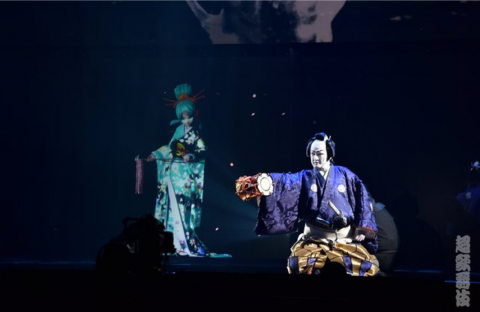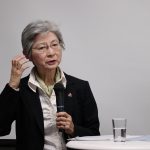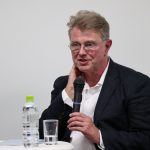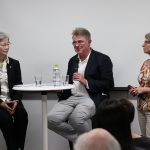
Download
Venue
Deutsches Institut für Japanstudien
Jochi Kioizaka Bldg. 2F
7-1 Kioicho, Chiyoda-ku
Tokyo 102-0094, Japan
Access
Registration Info
The event is held in English.
After the presentation and the comment there will be time for Q&A and networking.
Admission is free, registration is required.
Registration Form
We are sorry! Registration for this event is no longer possible.
Androids and Virtual Reality – Simulations of the Human in Japanese Theatre
May 23, 2019 / 6:30 P.M. - 8 P.M.
Mari Boyd, Sophia University, Tokyo
M. Cody Poulton, University of Victoria, Canada
Contemporary artists are increasingly creating works that lack the presence of the human, as if to imagine a posthuman world, a posthumous world, a world without us. Such posthuman use of androids draws attention to the significance of negotiating different states of perception and transcending established value systems to sustain a viable position in a global world. But the human instinct to create images of ourselves is still strong, as we see not only in the androids used in the robot theatre of Ishiguro Hiroshi and Hirata Oriza, but also in such popular virtual idols as Hatsune Miku. Prof. Mari Boyd will situate the new 21st century development in Japanese robot/android theatre in two contexts: first, the karakuri (trick) automata popular from the 17th century and, second, the present national push in branding Japan as a society 5.0, i.e. a technology-based society emerging through the fourth industrial revolution. She will then introduce the collaborative theater performance series by playwright-director Hirata Oriza and robotics scientist Ishiguro Hiroshi to focus on the plays Sayonara (2010) and Three Sisters, Android Version (2012). Prof. Cody Poulton will examine the Vocaloid character Hatsune Miku and the impact it is having on popular culture with examples from two productions: Shibusawa Keiichirō’s opera, The End (2013) and the “ultra-kabuki” Hanakurabe Senbonzakura (Battle of Wits and The Thousand Cherry Trees, 2016).
Mari Boyd is Professor Emerita at Sophia University, Tokyo. With a research focus on modern Japanese theatre including material performance, she is the author of The Aesthetics of Quietude: Ōta Shōgo and the Theatre of Divestiture (Sophia U.P. 2006). She has contributed numerous articles to Japanese and English language periodicals and books on Japanese theater and is currently preparing a monograph on material performance. She is also on the Committee for the ENGEKI: Japanese Theatre in the New Millennium anthology series (Japan Playwrights Association, 2016-2019) and her recent translation for it is Kurō Tanino’s Avidya―The Dark Inn.
M. Cody Poulton is Professor of Japanese literature and theatre in the Department of Pacific and Asian Studies at the University of Victoria, Canada, where he has taught since 1988. Active as a translator of Japanese fiction and drama, he is author of Spirits of Another Sort: The Plays of Izumi Kyōka (2001) and A Beggar’s Art: Scripting Modernity in Japan, 1900-1930 (2010). He is also co-editor, with Mitsuya Mori and J. Thomas Rimer, of The Columbia Anthology of Modern Japanese Drama (2014) and a contributing editor to The Cambridge History of Japanese Theatre (2016).






